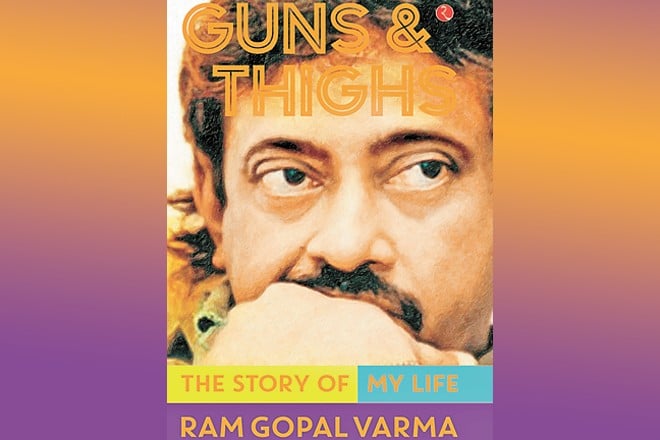
Ram Gopal Varma, revered as a filmmaker in the ‘90s, fell from grace after his over-the-top adaptation of Sholay earned him universal wrath and unprecedented failure. In Guns & Thighs, the controversial director clears the air and offers his unique perspective on matters of cinema and more

Ram Gopal Varma, revered as a filmmaker in the ‘90s, fell from grace after his over-the-top adaptation of Sholay earned him universal wrath and unprecedented failure. In Guns & Thighs, the controversial director clears the air and offers his unique perspective on matters of cinema and more.
Did you know?
He may be the director behind some of the worst flicks ever produced in cinematic history but there was a time when Ram Gopal Varma’s name was synonymous with success and quality. Before he fell from grace as a storyteller with disastrous films like Ram Gopal Varma Ki Aag, Phoonk, Agyaat, Department, Bhoot Returns and Satya 2 to name a few, Varma had given countless hits, a feat few directors could accomplish in the ‘90s. That is one reason why listening to Ramu’s rant about his career is a must. Who knows, maybe one day he will deliver a provoking hit and climb the ladder to the level of hot commodity again!
Before you move ahead, let me remind you that Guns & Thighs is not Ram Gopal Varma’s autobiography; the 54-year old director felt that he ‘gotta do what he gotta do’ and wrote this book to clarify matters.
He talks about the biggest failure of his career - the Sholay remake - and also blasts journalists who write about him without making sufficient inquiries. He clarifies that he never criticized Amitabh Bachchan or Aamir Khan (as reported in papers). Using his traditional wit and honesty, he presents a narrative that would make its author proud.
In this book, readers will come across the Ramu-way of dealing with things like his ‘don’t-give-a-damn’ attitude that kept him from working with the Khans (except Aamir who starred in Rangeela), his impulsive decision to cast a sweaty, bearded man in Satya (a gamble that paid off since the film is considered a cult classic now) and his self-confidence which saw him go down but not without a fight after the RGV Ki Aag debacle.
If you’re wondering why the book is called Guns & Thighs, its Varma’s way of paying tribute to the "guns" of Amitabh Bachchan and the "thighs" of Sridevi - the two people he finds inspirational. Varma goes on to explain how he always wanted to work with both of them in films and his reaction when he finally had the opportunity to meet them. He gives viewers a glimpse into his process such as how he convinced an actor like Amitabh Bachchan to star in challenging films like Nishabd and Sarkar.
As the book goes on, we learn about the many incidents that shaped Ram Gopal Varma as an individual. He recounts anecdotes and stories such as the advice from his grandfather that he never followed or his decision to reinvent Sholay, the sharp albeit harsh decisions that helped establishing him as a provoking filmmaker.
While there are plenty of cinematic conversations on offer, Varma has, thankfully, stayed away from mentioning his early days and things like what he did in school because that’s the kind of director Ramu is.
Upon reading this book, we learn that Ramu was always different from others. But what’s noticeable is how he comes clean on various subjects such as his apology to Ismail Darbar (within the book) for not keeping his promise.
His reasons for producing films, both good and bad, are also explored. Ramu explains his actions and offers insight into his reasoning. We learn why he felt compelled to make Shiva’s prequel that bombed at the box office.
His admission about the one female construction worker who he (and his friends) eyed in college is something for the front benchers while the disclosure that he was operating a gang in college is both fodder for his gangster flick fans and also explains why his gangster films are so gritty and feel closer to reality.
Some deeply personal, albeit tragic moments are also explored as Varma notes his own level of discomfort when he had to break the news of his father’s death to his mother.
On a concluding note, it must be added that though some may find the book’s content akin to RGV interviewing RGV or may even have a problem with his unflinching honest, it is ultimately a perspective on a man who has seen enormous success and spectacular failure. Ultimately, its RGV’s story and how he presents it is his prerogative.